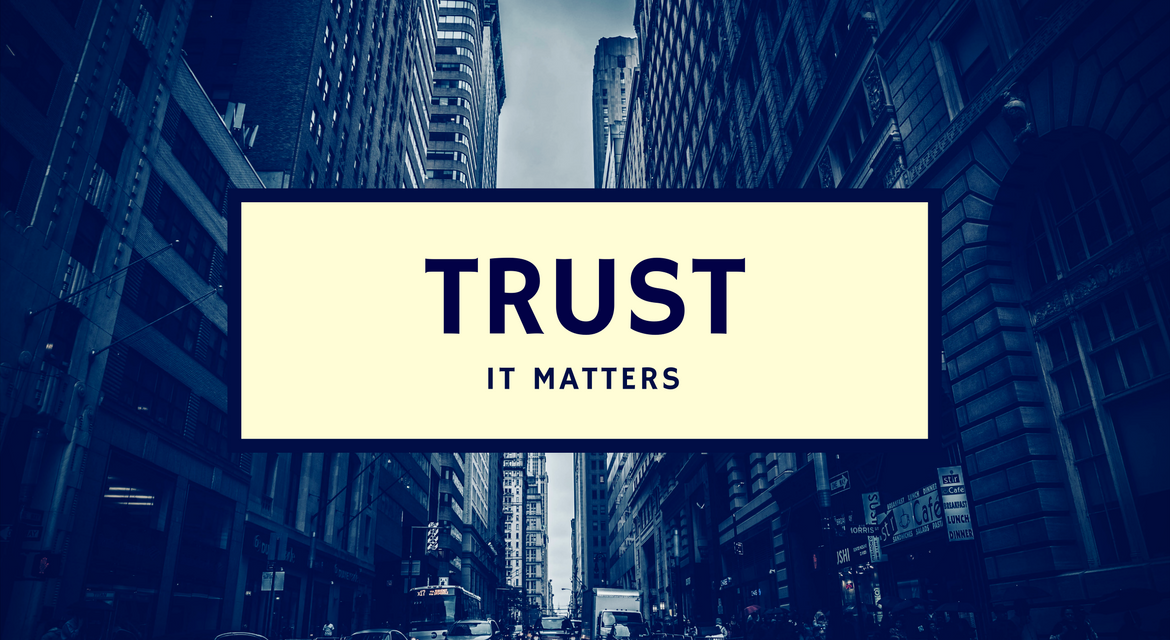When it comes to marketing, who you are matters just as much, if not more, than what you do. Why? Because other companies also do what you do and they may be cheaper, offer better customer service, have a bigger inventory of products or dozens of other reasons to set them apart from you. So, why would anyone buy from you?
Easy. They trust you. And, people want to work with people they like and trust. If you needed an agency to help you with your marketing and all of the prospects offered a fairly similar service, what would help you make your final decision? Price? Fancy proposal? Maybe. But I don’t have to tell you, if someone doesn’t trust you, they will not work with you.
So, what creates trust?
- Being Authentic
I try to always be real. As a young female tech entrepreneur, I have been faced with many challenges over the years. I have made many mistakes and through my experiences, I have learned that I just gotta be me. By being authentic, you create room for others to be authentic as well. And, that leads to genuine connection, instead of the uncomfortable conversation that a sales pitch can often lead to.
- Transparency
Certain industries, including my own, can come with a bad rap. Try talking to a website owner that hasn’t been burned by some amateur web designer or phony SEO. When you hide any part of who you are and your brand intent, you automatically create mistrust. Instead, if you take the what-you-see-is-what-you-get approach, you may not covert every lead into a customer, but you will create a level of trust for the right customers, and doesn’t that matter more?
- Adding Value
A good buddy of mine, Jim Peake (hey Jim!), is a PRO at adding value. He knows everyone, always remembers names and never misses an opportunity to connect two people – even when it doesn’t directly benefit him for any specific reason. If you want to grow your brand, always add value to your prospects, even those who will never become a buyer. Some of your best brand advocates can come out of simply offering great customer service, even when it doesn’t directly benefit your bottom line.
- Consistency
The internet is a fickle place. One of the quickest ways to create mistrust is to promise something and not follow through on your word. If you want a prospect to see the value in your brand, you have to create a steady flow of consistency. This means if you offer a monthly newsletter, you actually send a monthly newsletter. There is no sense in marketing if your message isn’t clear and on time.
- Demonstrating Integrity
If you have a personal code of ethics, never let anything become more important to you. No prospect or amount of money can ever replace what is lost once you decide to break your own moral code. You always have the option of making the right decision; do it every time and you’ll never have to worry about your brand integrity or having a bad reputation.
Your Vision Statement
If your company stands for values that are important to you, show it! If you intend to hold your company to a certain set of values, you must start with a clear mission and vision for the company. Mission statements should support the company vision and offer the employees, customers and partners a clear purpose.
A vision statement is intended to paint the picture of the future – the vision of where you want the company to be in 5-10 years. An effective vision should inspire, but challenge as well. The vision should help define the company goals and provide the motivation needed when you are feeling a bit lost and company initiatives have gone off track.
Samples of Successful Vision Statements:
- Ford: People working together as a lean, global enterprise to make people’s lives better through automotive and mobility leadership.
- Apple: To produce high-quality, low cost, easy to use products that incorporate high technology for the individual.
- Tesla: To accelerate the world’s transition to sustainable energy.
- Avon: To be the company that best understands and satisfies the product, service and self-fulfillment needs of women—globally.
- Disney: To make people happy.
When you think about the evolution of each of these brands, you can actually see how their success is attributed to having a clear vision to build their mission around. Without a clear vision, what are you really working towards?
You remember the saying, “If you don’t stand for something, you’ll fall for anything.” The same goes for business.
If you don’t have a clear aim, you’ll miss every time.
By defining your vision, you will, in turn, create a set of values and goals that your employees can get behind. If you want your prospects and clients to trust you, you’re going to have to make sure your employees are also making decisions based on your core values and long-term, company vision.
Does your company have a clear vision statement? How can you use trust to define your company vision?




Leave a Reply